What is it that makes a successful captain?
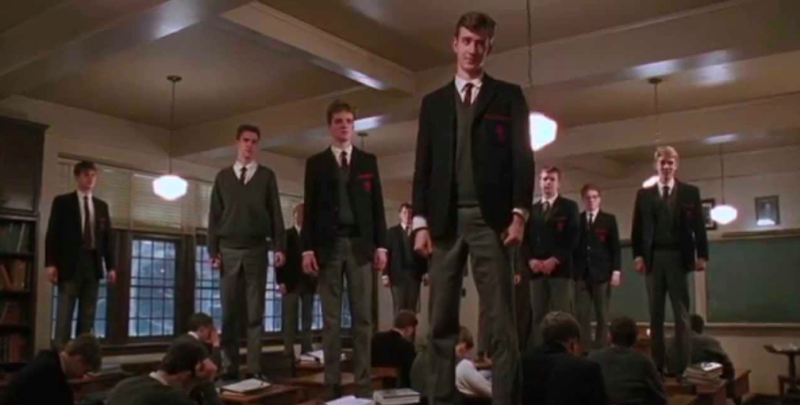
I've always thought that the most important attribute a great leader can possess is an understanding of what makes those around him or her tick. That skill itself is what allows a captain to know when to put an arm around a player and when to scream in their face, when to wind them up ready for battle and when to ease them back down. It also ensures that they understand not just the relationship between themselves and their teammates but how the group functions as a whole.
Some might argue that passion is a pre-requisite for great leadership too. Perhaps it's because I'm a cold-hearted Englishman not prone to great displays of emotion but passion, in my opinion, is overrated. Sure you'd want a captain who is determined and who leads from the front, setting the standards he expects others to follow but being simply passionate won't, in my opinion, be enough to sustain a leader for any length of time and suggests a lack of the man-management skills described above.
How about tactical nouse? This skill might depend more on the sport in question. For example, how much tactical input does a captain of a football team have compared to the captain of a cricket team? One seems more like the figurehead on the bow of the ship while by contrast the other is the guy who is actually steering it.
Both the English cricket team and Tottenham Hotspur football club have to consider the above given their current situations.
For Spurs the injury to Hugo Lloris who has been club captain for the last 4 years has opened up the opportunity for Harry Kane to stake his claim for the role. Both players captain their respective national teams and while Lloris can always point to the fact that under his captaincy the French are current World Cup champions, Kane has been at the helm of a young England side that has been both relatively successful while at the same time playing a refreshing brand of football. His own personal form during his short tenure as captain has also been nothing short of spectacular.
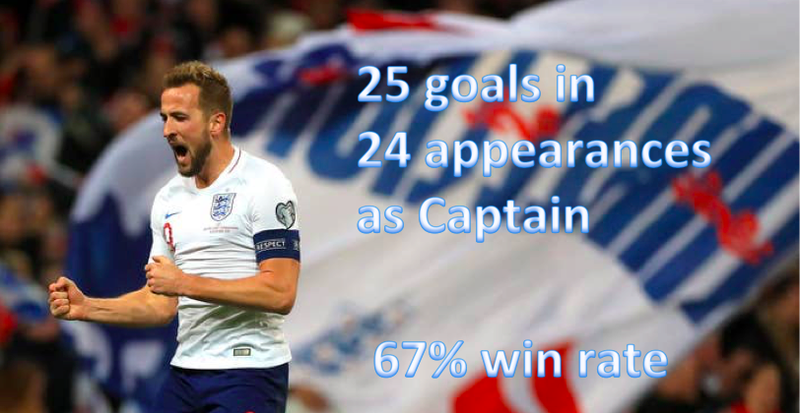
It is always tempting for any sports team to name its best player as the captain. Certainly having someone who can lead by example ticks one of the boxes noted above and if that individual wants the job then it must be very difficult for the management, owners and selectors of that side to refuse them. However, in some instances and particularly it would appear with England cricket captains promoting the "best player" comes with a trade-off in regards their personal form as the below graphic suggests.
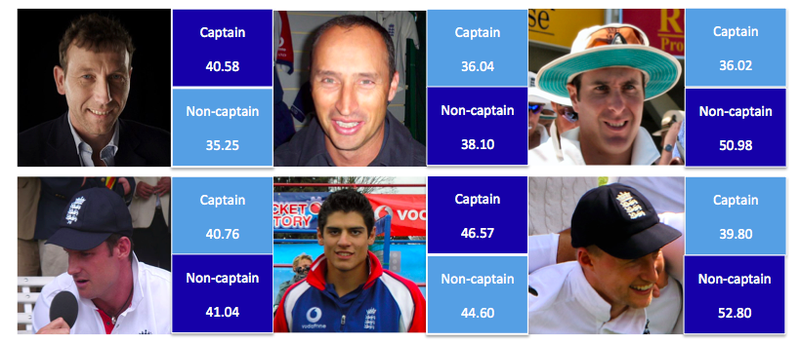 <grammarly-extension class="_1KJtL" style="position: absolute; top: 0px; left: 0px; pointer-events: none; z-index: 1;">
<grammarly-extension class="_1KJtL" style="position: absolute; top: 0px; left: 0px; pointer-events: none; z-index: 1;">Furthermore, there is the nagging question of how you actually define your "best player". If scoring the most goals makes a footballer the best player on the side then presumably all strikers would by definition have to be considered for captaincy. Similarly if scoring the most runs makes one the best cricketer on the team then you'd expect most captains to be batting between positions 3 and 5. As the below table shows the tendency within football is to name a more defensive player as captain. Is that because they are more influential on the game or is it perhaps because they can get a better tactical overview from the position they hold on the pitch?
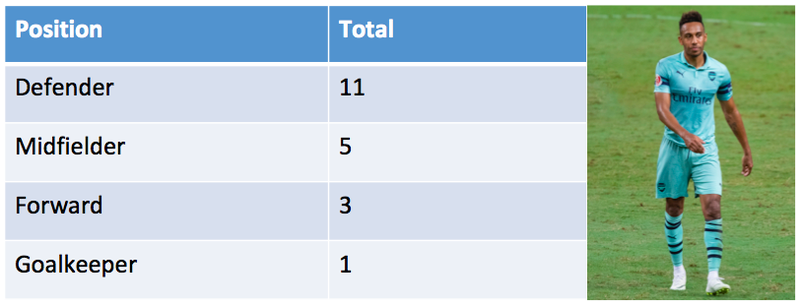
Having a keeper as captain certainly bucks the trend for Spurs whereas the England cricket team has stuck very much to what it considers the tried and trusted. The last man to captain England's Test team who was not an out and out batsman was Andrew Flintoff back in 2006 and he only lasted 11 matches. You have to go all the way back to the early 80s and Bob Willis to find the last pure bowler to hold that position. While you can certainly make the case that the role of goalkeeper is one that can have a limited influence on general play within a match surely the same can't be said for a bowler so why is it that we have traditionally shied away from allowing them to lead the team?
If it's not a question of personality (presumably any role within the team could possess the necessary traits for leadership) and influence then is it more a concern around tactical nouse. There does seem to be an underlying feeling within the game of cricket that a bowler who is also captain may not be capable of being objective enough with his bowling changes and fielding positions but then that suggests that batsmen who hold the role get it right more often than not and I could list many instances over the last couple of years where that hasn't been the case under the batsman captain Root.
Ultimately Root's position as captain is more secure simply because there are few other candidates for the role. If England wanted to stick with appointing another batsman as captain in his place then the next most experienced cricketer and a man who has lead his county (my county too, Surrey) would be Rory Burns but with just 13 Test caps to his name that would be something of a long shot. Elsewhere, vice-captain Ben Stokes might be the obvious candidate but I've written before that I see him more as the talisman of the team, certainly a player that can lead by example and have a monumental influence on games but not a man that England should be looking to burden with further responsibilities. Stuart Broad was a candidate after Cook stepped down 4 years ago but again doubts were raised about him holding the role as he is a bowler. At 33-years-old he is also coming towards the end of his career and would therefore not be a long-term appointment.
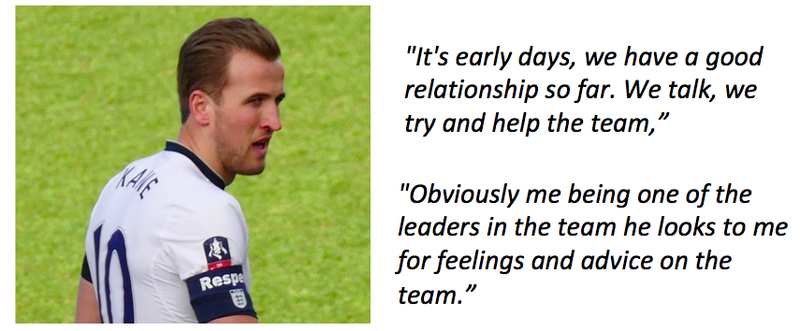
At Spurs, the situation is very different. Not only does the club have a man in Kane who seems to tick all the relevant boxes but his recent comments in the media suggest he is keen on the position. With Lloris out injured until at least the New Year and a new manager in charge, the timing for Kane to make his move is perfect. As far as Mourinho is concerned the question will be what impact naming or not naming Kane as captain on a permanent basis would have on the club. The final decision may come down to whether Mourinho and the club think that appointing Kane as club captain would go some way to securing their most valuable asset's future in North London.
Comments